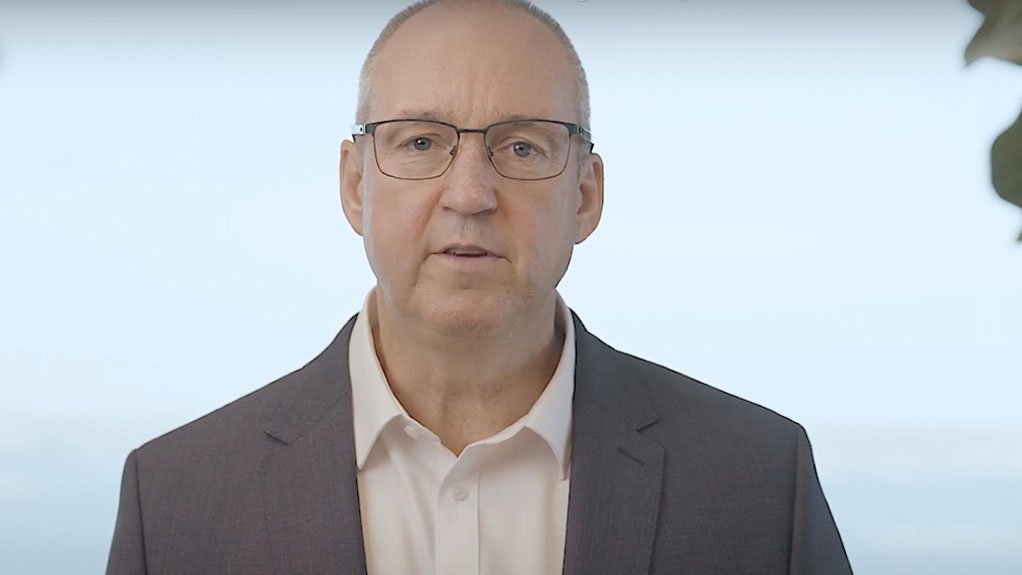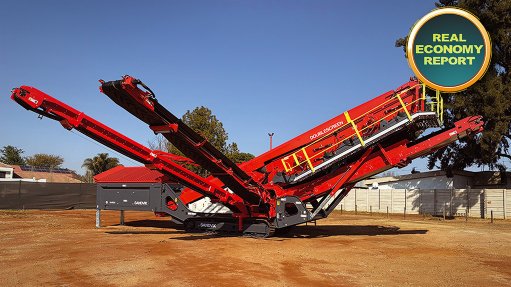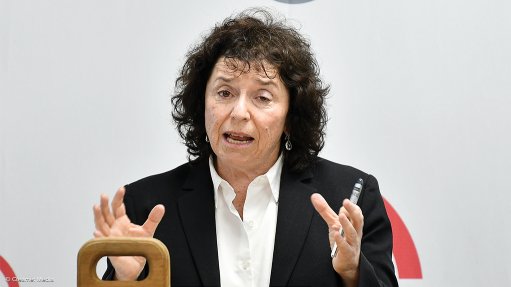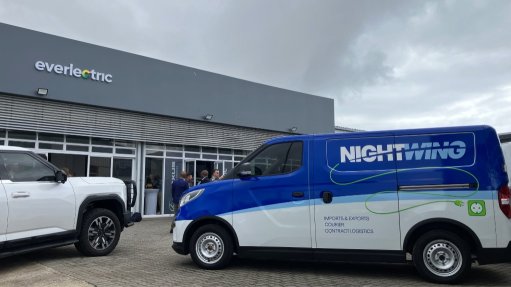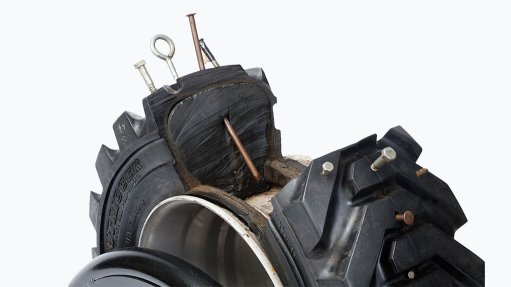Crucial decarbonisation investigation into Hillside Aluminium is continuing intensely
JOHANNESBURG (miningweekly.com) – Solutions to support decarbonisation, while ensuring operational competitiveness into the future, are continuing to be intensely investigated at South Africa's large Hillside Aluminium operation in KwaZulu-Natal, South32 CEO Graham Kerr assured Mining Weekly in an interview on Thursday, following the Johannesburg- Sydney- and London-listed company reporting underlying earnings before interest, taxes, depreciation and amortisation of $708-million for the first half of its 2024 financial year to December 31.
Hillside is the largest aluminium smelter in the southern hemisphere and produces quality primary aluminium for the domestic and export markets.
Great news is that Hillside's strong ongoing operational performance in the half year significantly supported record aluminium production for the group as a whole, but with South32 planning to halve its Scope 1 and 2 emissions by 2035, Hillside represents a colossal challenge as it accounts for 59% of the company's total Scope 1 and 2 emissions.
As has often been quipped, aluminium is half electricity and the electricity being used to produce aluminium at Hillside in Richards Bay is coal-fired, which is destined to have major marketing implications given the faster-than-expected advance of Europe's carbon border adjustment mechanism (CBAM) tariff barrier, which penalises the entry of aluminium that is not produced with clean electricity.
Against that background, it is crucial that large-scale renewable and low-carbon energy sources are advanced at Hillside, which directly and indirectly supports more than 31 000 jobs and contributes an important R9.9-billion to South Africa’s gross domestic product.
Contrasting sharply with Hillside is South32’s Mozal Aluminium smelter in Mozambique, which is already using renewable energy. In addition, South32 is at a very advanced stage of extending Mozal's hydroelectric power contract beyond the current expiration date of 2026.
At Hillside, where the power agreement expires in 2031, the transition to a low-carbon energy source is seen to be technologically and commercially complex owing to the smelter’s constant high energy demand.
Crucially, work is under way with South Africa's State-owned power utility Eskom, government, and commercial partners to develop and implement an energy solution at the scale required for the large aluminium smelter.
The potential to enter into a pilot agreement to purchase energy attributes associated with electricity generated at the Koeberg nuclear power station is part of a nonbinding memorandum of understanding (MoU) that has been signed with Eskom.
This MoU with Eskom centres on allowing Hillside to maintain aluminium supply from South Africa to Europe without CBAM turning that into a non-competitive proposition, South32 COO Noel Pillay explained to Mining Weekly.
South Africa’s pace of aluminium exportation needs to continue to benefit from the higher intensity of aluminium use in battery electric vehicles (BEVs), substitution of plastics in packaging and the increasing use of aluminium in renewables. Aluminium intensity in BEVs is said to be 40% higher than in internal combustion engine vehicles, from 111 kg/car in 2020 to 256 kg/car in 2050, owing to heavy BEV batteries requiring the light-weighting that aluminium provides.
Hillside will be uncompetitive in the 1.5 °C scenario without an affordable source of low-carbon energy, while the carbon impact on Mozal Aluminium would be lower given its access to clean energy.
Just energy transition considerations for Hillside require the switch to low-carbon energy to be planned in collaboration with a broad range of government and community stakeholders.
Regarding the plan of the Mozambique government to end half a century of hydropower supply to Eskom, Kerr said, in response to SBG Securities metals and mining research head Tim Clark, that South32 had been in discussions with the Mozambique government for some time on the cessation.
A co-created solution to preserve jobs and Mozal’s considerable contribution to Mozambique’s gross domestic product has been ongoing for the past few years and will be advanced to closure as soon as possible.
“That work is under way,” Pillay disclosed.
Comments
Press Office
Announcements
What's On
Subscribe to improve your user experience...
Option 1 (equivalent of R125 a month):
Receive a weekly copy of Creamer Media's Engineering News & Mining Weekly magazine
(print copy for those in South Africa and e-magazine for those outside of South Africa)
Receive daily email newsletters
Access to full search results
Access archive of magazine back copies
Access to Projects in Progress
Access to ONE Research Report of your choice in PDF format
Option 2 (equivalent of R375 a month):
All benefits from Option 1
PLUS
Access to Creamer Media's Research Channel Africa for ALL Research Reports, in PDF format, on various industrial and mining sectors
including Electricity; Water; Energy Transition; Hydrogen; Roads, Rail and Ports; Coal; Gold; Platinum; Battery Metals; etc.
Already a subscriber?
Forgotten your password?
Receive weekly copy of Creamer Media's Engineering News & Mining Weekly magazine (print copy for those in South Africa and e-magazine for those outside of South Africa)
➕
Recieve daily email newsletters
➕
Access to full search results
➕
Access archive of magazine back copies
➕
Access to Projects in Progress
➕
Access to ONE Research Report of your choice in PDF format
RESEARCH CHANNEL AFRICA
R4500 (equivalent of R375 a month)
SUBSCRIBEAll benefits from Option 1
➕
Access to Creamer Media's Research Channel Africa for ALL Research Reports on various industrial and mining sectors, in PDF format, including on:
Electricity
➕
Water
➕
Energy Transition
➕
Hydrogen
➕
Roads, Rail and Ports
➕
Coal
➕
Gold
➕
Platinum
➕
Battery Metals
➕
etc.
Receive all benefits from Option 1 or Option 2 delivered to numerous people at your company
➕
Multiple User names and Passwords for simultaneous log-ins
➕
Intranet integration access to all in your organisation



